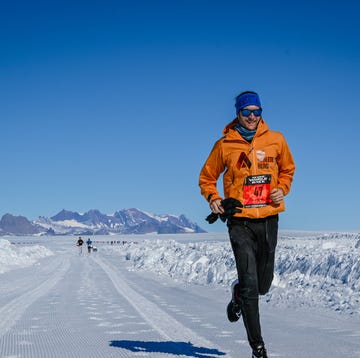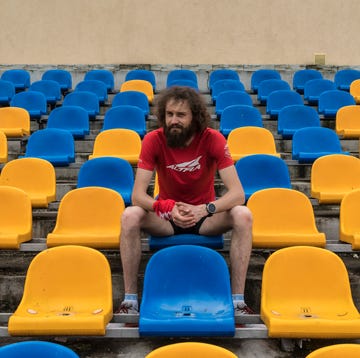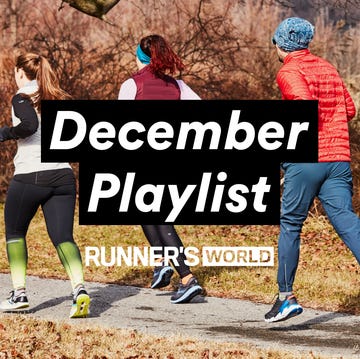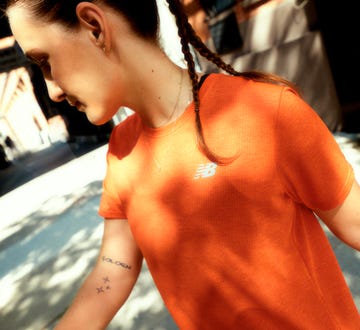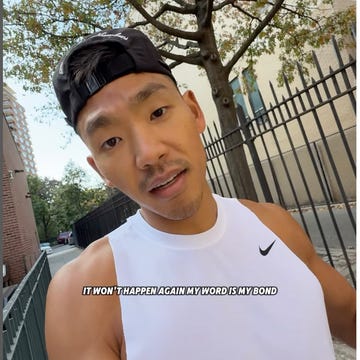My Nana’s two-story half-double sat at the edge of town. In the spring, rhododendron flowers bloomed below the front porch and tulips popped up alongside the walkway leading to the back; a tall oak tree stood beside the house. Out back was a small brick church whose bells chimed on Sundays. The bedroom I stayed in was at the front of the house, where I fell asleep listening to cars go by at night, something I wasn’t used to on the wooded cul-de-sac where I lived. A small heart-shaped prism hung in the kitchen window and reflected small rainbows around the room during the day.
Down the road, a mile or so from the house, were the dairy and chicken farms, and the cemetery where her son is buried. My father sometimes told me I reminded him of his late brother, George, who died before I was born; we were both quiet, tall, and track athletes. During my college years in the late ’90s, I often stayed at Nana’s during finals week for a quiet place to study and rest. It was in May during the spring semester when I first discovered my love for running in the country and exploring the back roads that weaved around Nana’s home. On those runs I began to piece together the stories that came before me.
I looked forward to running down the open and expansive roads that led from the house—I was fast on the long open stretches of countryside. It certainly wasn’t the wooded and rocky paths of the Poconos, where I grew up and first started running. Spring arrived much earlier at Nana’s house in the Lehigh Valley of Pennsylvania than it did back home, and the promise of possibility was ripe with each mile. The breeze brought with it scents of mud and manure from the nearby farms. Running alone in the country, I noticed the subtle yet remarkable shifts of the environment. Here, I could see forever moving alongside the fields and farmland, the Appalachian Mountains in the distance.
All About 75 Hard. At the crest of a hill, above an old stone church, and adjacent to farmland on the other side, lay his small gravestone. It was during those runs in the country I began to feel the weight of unspoken tragedies that lived along the corners and in the crevices of my family.
As an only child, I was always delighted to listen to stories of my parents’ and their siblings’ childhood. Uncle George was practicing juggling oranges in the kitchen, Dad had told me, when midair he dropped one—it landed perfectly in the bowl of gravy on the table and splashed onto every wall of the kitchen, including the ceiling. “Your uncle was lucky he could run,” Dad would tell me as I’d giggle imagining the spectacle and Nana chasing him out of the house.
Every Christmas I loved hearing the story of how one year Santa accidentally put coal in Dad’s stocking when it was meant for Uncle George. Uncle George sounded mischievous like myself. I felt connected to him through the stories.
When I first started running toward the cemetery, I was just a few years younger than Uncle George was when he died in a car accident. Nana never talked about George to me, keeping her heartaches to herself. If I reminded her of George, like I did Dad, she never told me so.
In the evening, after I ran and studied, Nana and I sat in the kitchen and often ate turkey barbecue and pierogies, and drank vanilla milkshakes from the local drive-in, The Daisy Dairy Bar. Then we watched game shows and murder mysteries while sipping tea in her living room. The windows were always kept open in May—the unspoken stories of the past left outside on the road in the cool night with all the beautiful things in bloom.
It had been some 30 years since Uncle George had passed away by the time I was running down those roads and stopping by his gravestone. And I suppose it was then when I first felt he was with me. And he’s stayed with me on all the roads I’ve been running.
The years took me far away from those roads around Nana’s home, but I eventually returned, this time in my 40s, with a heartache of my own, feeling a sense of longing to be near the roads of my past. I revisited the place where Uncle George and I first connected. After all that time, I came back to tell him my father was dying—I wanted him to know it was time to look for his brother.
At the bottom of the hill by a trail’s entrance now sits a bench with my father’s name, not too far from his brother and the roads where I once found part of my history. The roads that are etched in me now forever.
Jennifer Acker reports on a wide range of health and wellness topics for Runner’s World and Bicycling. She’s passionate about delivering journalism that enriches the lives of readers. Jennifer is a lifelong runner—with several half marathons, and a few marathons under her belt, certified yoga instructor, and having grown up in the Pocono Mountains, always has a mountain bike and pair of skis ready for the perfect fall or winter day.



